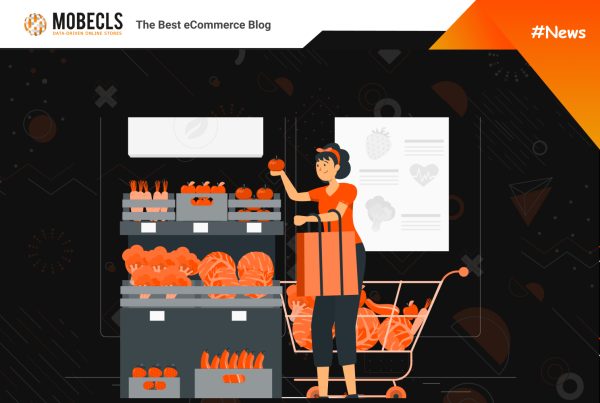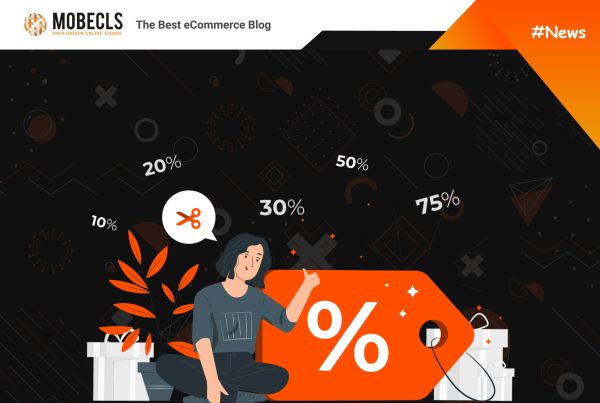Recently, eCommerce has seen a rise of artificial intelligence (AI), with ChatGPT being one particularly powerful tool. ChatGPT is a language model that employs machine learning to generate human-like text. It has many potential applications in eCommerce, including content marketing, email marketing, generating ideas, data management, and customer support and personalization.
ChatGPT and How to Use It in eCommerce
ChatGPT can generate natural-sounding text in response to prompts. It’s an extremely versatile tool since it can be fine-tuned to specific tasks. Now, let’s explore some areas where you can use this language model.
Customer Support & Personalization
One way eCommerce can utilize ChatGPT is for customer support and personalization. Chatbots are virtual assistants that can help customers find what they need, answer their questions, and resolve their issues. ChatGPT can create chatbots that communicate with customers naturally and on a personalized level. These chatbots provide 24/7 support and can analyze data from a customer’s past interactions, purchase history, and preferences, using machine learning algorithms to provide customized responses tailored to the customer’s specific needs and interests.
For instance, if a customer has previously purchased a product, ChatGPT can suggest related products or provide information on product updates or promotions related to that product. Similarly, if a customer has had previous support interactions, ChatGPT can provide more personalized and relevant responses to their queries.
Moreover, ChatGPT’s multilingual support is an excellent feature that guarantees a seamless customer experience. OpenAi model trained the model on vast amounts of text data in multiple languages, including English, French, German, Spanish, Italian, and Chinese, among others. This means that businesses can create chatbots that converse with customers in their native language, providing a more personalized and engaging customer experience, especially for businesses that operate in regions where multiple languages are spoken (e.g. Europe).
Email Marketing
This AI-powered tool can create personalized email content for each recipient, by analyzing their previous behavior and preferences. In turn, this can result in higher open rates, click-through rates, and conversion rates.
You can train ChatGPT to generate different versions of email content that cater to diverse audiences or goals. This feature can be especially useful for A/B testing and optimizing email marketing campaigns. By generating variations of email content, businesses can test which version performs better and use that knowledge to enhance their overall email marketing strategy.
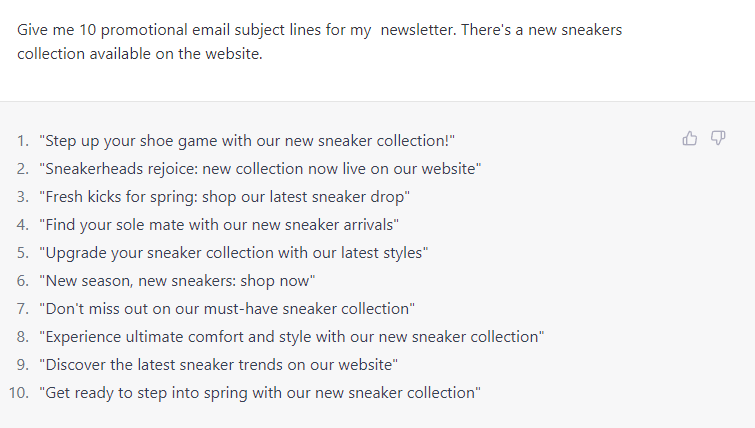
In addition, ChatGPT can assist in generating subject lines and email content that are more engaging and relevant to the target audience. By analyzing past email performance and user behavior, the model can suggest subject lines and content that are more likely to grab the attention of the recipient. This level of personalization can significantly improve the effectiveness of email marketing efforts.
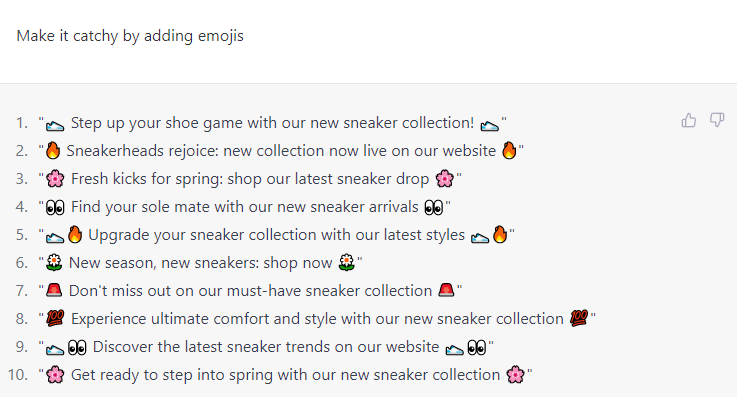
Data Management
ChatGPT can assist in automating the process of cleaning and organizing eCommerce data, by removing duplicates, fixing errors, and standardizing data across different platforms. This can help businesses save time and resources that would have otherwise been spent on manual data cleaning and organization. For instance, eCommerce data, such as product descriptions, customer reviews, and support tickets, can be categorized and tagged automatically by ChatGPT.
Since eCommerce data comes in various formats and structures, it can be challenging to compare and analyze. However, ChatGPT can normalize the data by identifying and extracting key information, such as product names, prices, and SKUs. Additionally, it can perform sentiment analysis on eCommerce data, such as customer reviews and social media mentions, which can help businesses identify trends and improve their products and services based on customer feedback.
Furthermore, ChatGPT can be trained on eCommerce transaction data to detect patterns that may indicate fraudulent activity. This is a common use case for AI-powered fraud detection systems. For instance,the model may flag a potentially fraudulent transaction if a customer suddenly makes a large purchase that is very different from their usual spending habits. Similarly, if a customer’s shipping address is different from their billing address or if multiple orders are placed using the same payment method and shipping address, ChatGPT may also flag these transactions as potentially fraudulent. In addition to identifying potential fraudulent activity, ChatGPT can also suggest changes to existing fraud prevention systems based on patterns in the data, which can help prevent fraud.
Content Marketing
Content marketing is another significant marketing strategy that eCommerce businesses depend on. ChatGPT can revolutionize content marketing by helping you create unique and attractive content easily. All you have to do is provide the software with the topic you want your content to be about.
The first step in creating content with ChatGPT is to identify the topics and keywords that you want to target. You can use tools like Google Keyword Planner and Ahrefs to find popular search terms and topics in your niche. Once you have a list of topics, you can use ChatGPT to generate content around those topics.
Editor’s pick: Nike Marketing And ECommerce Strategy: The Secret Of Success
Before you can start generating content with ChatGPT, you need to train the model on your brand’s voice and tone. You can do this by providing examples of existing content that you want ChatGPT to emulate. For example, you might provide blog posts, product descriptions, and social media posts.

Once you’ve trained the model, you can start generating content. Simply input the topic and any other relevant information, and ChatGPT will generate a high-quality piece of content. You can use the content as-is or edit it to fit your brand’s style and tone.
One of the benefits of using ChatGPT is that it can generate personalized content based on the user’s browsing and purchase history. For example, if a user has previously purchased a product in a particular category, ChatGPT can generate content related to that category. This can help increase engagement and conversions.
To get the most out of your content marketing efforts, it’s important to optimize your content for search engines. ChatGPT can help with this by generating content around keywords and topics that are relevant to your business. You can also use tools like Yoast SEO to optimize the content further.
Bottom Line
ChatGPT is a powerful AI tool that eCommerce businesses can use to enhance their customer support, email marketing, data management, and content creation efforts. By utilizing ChatGPT’s capabilities in these areas, businesses can improve their overall customer experience, increase engagement, and save time and resources. With its ability to generate natural-sounding text in multiple languages, ChatGPT has the potential to revolutionize the way eCommerce businesses communicate with their customers. As the use of AI in eCommerce continues to grow, ChatGPT is a tool that businesses should consider integrating into their strategies to stay competitive and provide the best possible experience for their customers.
Need Help to Integrate ChatGPT for Your Website?
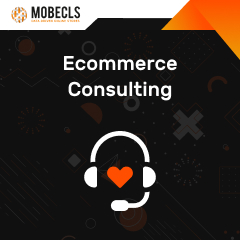 If you want to be ahead of your competitors and make sales, you need a solid online business strategy, which is vital for both eCommerce newcomers and already established businesses. If you have doubts about your eCommerce strategy or don’t have it, we’ll help you fix or create it.
If you want to be ahead of your competitors and make sales, you need a solid online business strategy, which is vital for both eCommerce newcomers and already established businesses. If you have doubts about your eCommerce strategy or don’t have it, we’ll help you fix or create it.

